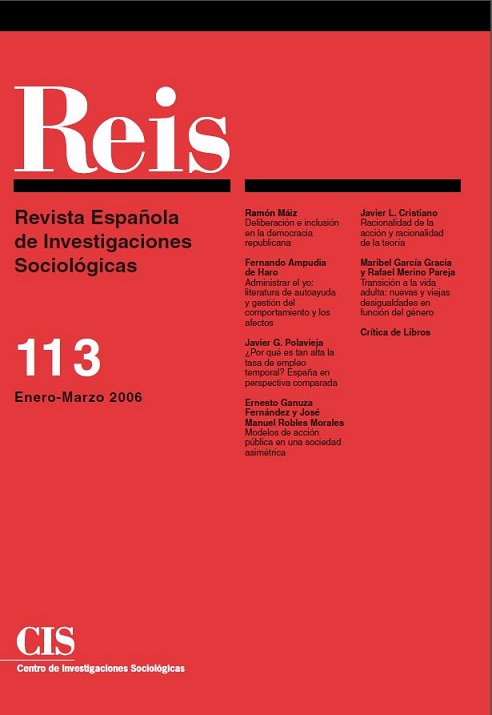Rationality of action and rationality of theory
DOI:
https://doi.org/10.5477/cis/reis.113.135Keywords:
Rational Choice, Social Aggregates, IndividualismAbstract
This article offers a critical analysis of the four central arguments with which the rational choice theory claims to be a privileged methodological instrument of sociology: the «reasonable presumption» argument outlined by Elster, the «paradigmatic privilege» of Abell, the «integrating framework» of van Parijs and the explanatory strength of Freedman and Becker. After presenting these, a brief approach is made to the problem of the possibility of a theoretical construction that is capable of making a complex approach at the level of actions that is compatible with one that is complex at the level of «aggregates».
Downloads
Downloads
Published
How to Cite
Issue
Section
License
Copyright (c) 2024 Revista Española de Investigaciones Sociológicas

This work is licensed under a Creative Commons Attribution-ShareAlike 4.0 International License.
Permite Compartir — copiar y redistribuir el material en cualquier medio o formato, Adaptar — remezclar, transformar y construir a partir del material para cualquier propósito, incluso comercialmente.








